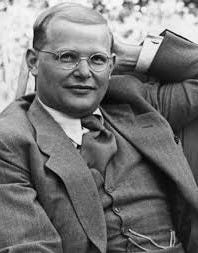General Introduction
I have been reading and listening to David Brooks, the New York Times columnist, for over a decade. While I do not agree with him on every issue, his recent piece on “The Six Principles of Stupidity” arrested my attention. He started the column by stating that while the Chinese were making incredible gains in Artificial Intelligence, Americans were making remarkable gains in human stupidity. He immediately made it clear that he was not saying that members of the Trump administration are not intelligent, that it is common knowledge that high-IQ individuals can behave in ways that are “as dumb as rocks.” The administration certainly has a gallery of Ivy League educated individuals including JD Vance, Elise Stefanik, Robert F. Kennedy, William Scharf, and Chris Wright. Trump himself would always boast of an Ivy League education.
Brook went on to define stupidity as “behaving in a way that ignores the question: what would happen next?” He wrote:
“The administration produced volleys of stupidity this week. It renewed threats to impose ruinous tariffs on Canada and Mexico that would drive up inflation in America. It attempted a broad and general purge of the federal workforce, apparently without asking how that purge would affect government operations. But I’d like to focus on one other episode: the attempt to freeze federal spending on assistance programs, and Trump’s subsequent decision to reverse course and undo the freeze.”
Brook’s mention of Dietrich Bonhoeffer in this column got me very excited. First, I had read a couple of books about him; I also read his Cost of Discipleship in college and sat in a class taught by Dr. Keith Reider in the fall of 2024. The professor strikes me as a Bonhoeffer guru through his analysis and final documentary on him. After reading his piece, I thought it was one of David Brooks’ finest pieces as it certainly made me revisit Bonhoeffer all over again, especially his Theory of Stupidity.
Dietrich Bonhoeffer
Dietrich Bonhoeffer was a German theologian, pastor, and public intellectual. He was born into a formidable intellectually accomplished family of eight children. Education, ethics, and moral responsibility, and music played major roles in shaping his young mind. He was a product of the famous University of Tubingen and later, the University of Berlin. He completed his doctoral degree “summa cum laude” at the age of 21.
Post-doctoral at Union Seminary New York
Bonhoeffer did his post-doctoral work at Union Theological Seminary in New York City from 1930-31. Though critical of American theology, the experience in New York would expose him to the realities of racism and social justice. He regularly attended the Black Church, notably the Abyssinian Baptist Church in Harlem, encountering Black Gospel Music, the preaching of Adam Clayton, and the remarkably vibrant faith of the African American community. This experience and exposure would later prepare him to confront antisemitism and injustice in his native Germany. Works of Reinhold Niebuhr, William James, and John Dewey were also part of his intellectual.
Letters from Prisons:
Bonhoeffer’s theory of stupidity was written during his imprisonment by the Nazis under his essays: “After Ten Years,” that is, after ten years of the rule of Hitler. This piece reminds me of other men who have shaped the course of history and who also spent some time in prison: Nelson Mandela – who was imprisoned for twenty-seven years in South Africa. Dr. Martin Luther King Jr.’s Letters from the Birmingham Jail is another instructive one. While attending Insider-Out courses aimed at teaching college-level courses in prison, I once spoke with one of the prison officials that I had witnessed unforeseen and unintended consequences of the Prison Industrial Complex in the United States. I have always been impressed by the intellectual curiosity and avid reading habits of prisoners – who are familiar with key texts in history, philosophy, and sociology, which are often in the repertoire of courses at graduate school. The powers that be that sent these individuals to prison meant to control and demean and devalue their minds and bodies but instead have produced works benefiting humanity at large even today. Bonhoeffer’s theory of stupidity is another classic example.


Bonhoeffer’s Theory of Stupidity
According to Bonhoeffer, stupidity is not just an intellectual defect but a moral and social problem. People often align themselves to become “stupid” not because they are intellectually defective but due to external pressure or groupthink. I have often shown the documentary “The Wave” in my introduction to sociology courses, a real-life experience where an entire class of students allowed the teacher to manipulate them into groupthink. Examples of groupthink abound in US history: the Vietnam War, Pearl Harbor, and, in a more recent memory, the Iraq War. Groupthink and forms of stupidity, whether in these political examples or the Wave, often render individuals unable to think critically and independently. The result is manipulation, propaganda, and complicity with evil. Bonhoeffer believed that stupidity is more dangerous than malice because it cannot be reasoned with despite the avalanche of evidence. I remember Hannah Arendt using the term “mechanical thoughtlessness” for such a situation. In the short paper, Bonhoeffer asserted:
‘Stupidity is a more dangerous enemy of the good than malice. One may protest evil; it can be exposed and, if need be, prevented using force. Evil always carries within itself the germ of its own subversion in that it leaves behind in human beings at least a sense of unease. Against stupidity, we are defenseless. Neither protests nor the use of force accomplish anything here; reasons fall on deaf ears; facts that contradict one’s prejudgment simply need not be believed — in such moments, the stupid person even becomes critical — and when facts are irrefutable, they are just pushed aside as inconsequential, as incidental.”
Bonhoeffer articulated the fact that “stupidity is perhaps less a psychological than a social problem.” He gave the example of an “upsurge of power” in the public sphere, whether it is political or religious, often infects a large portion of humankind with stupidity. It is not that there is a cognitive deficiency or incapacitation; instead, it is the impact of power that often deprives humans of “inner independence and, more or less consciously, give up establishing an autonomous position toward the emerging circumstances.”
Bonhoeffer then opined that it is like people in this condition are “under a spell, blinded, misused, and abused in his very being.” In such mindlessness, the stupid person, according to Bonhoeffer, will also be capable of any evil.
I grew up in Nigeria, and Yoruba people do believe in the efficacy of “edi” or asasi,” which is basically the same thing as being under a spell. Someone under “edi” in this culture does not conform with common sense; he or she often does something contrary to her progress or that of the community; they are usually stubborn, irrationally argumentative, and may even go to the extent of self-destruction that has a domino effect on the family or the community. It will require a diviner or what Yoruba people call “Babalawo” to remove the effect of a spell for total personal and collective liberation, first internally then externally through forms of rituals.
Conclusion
Bonhoeffer concluded that “it becomes quite clear that only an act of liberation, not instruction, can overcome stupidity. He mentioned two forms of liberation: internal and external, that in most cases “a genuine internal liberation becomes possible only when external liberation has preceded it.” As a theologian, Bonhoeffer made an appeal to the Bible, “The fear of God is the beginning of wisdom,” as a genuine way to overcome stupidity. I do not think that as a public intellectual, Bonhoeffer will limit internal liberation only to Christian or religious believers. People meet the supernatural in varieties of ways. In an age of disinformation and suppression of critical thinking, the need for vigilance, courage, taking responsibility for action, and intelligent engagement in civil society are not relics of the past but are needed today in all discourses.
Bonhoeffer put all the four concepts into practice, and he paid a price with his life for opposition to Hitler’s regime; he was executed on April 9, 1945, at a concentration camp just weeks before the end of World War II. His crime was the plot to assassinate Hitler and to being part of a plan to overthrow the Nazi regime. Bonhoeffer prayed before his execution, and remained calm, composed and courageous. His last words: “This is the end – for me, the beginning of life. His was a deep faith and belief in Almighty God.







great piece.
Thanks for writing the article. Like the highlights on Trump’s threat to impose tariffs; ignorant how his followers don’t realize that the consumers including they themselves will end up paying for the cost. On another note, was also shocked as to why the majority of Latino male voters voted for Trump even when Trump told them that he will deport them; been watching some YouTube channels & many are regretting it because it’s now affecting them. Also like how the article explains how people become stupid with Groupthink; can see it very well with MAGA and how they are intentionally manipulated by media but fail to see and think critically. Like the quote about how stupidity is a more dangerous enemy of the good than malice and Bonhoeffer’s elaboration on it. Only logical explanation as to why many fall for stupidity currently is due to a blinded spell; like the highlights of the need of internal & external liberation from stupidity. Critical thinking is always important; sad when people are persecuted for it. Thanks for the article